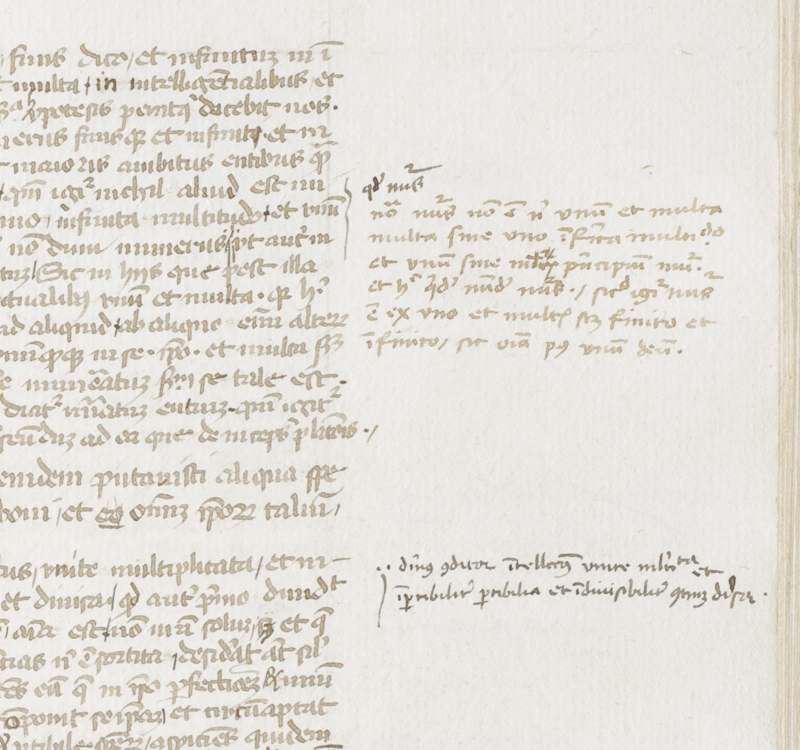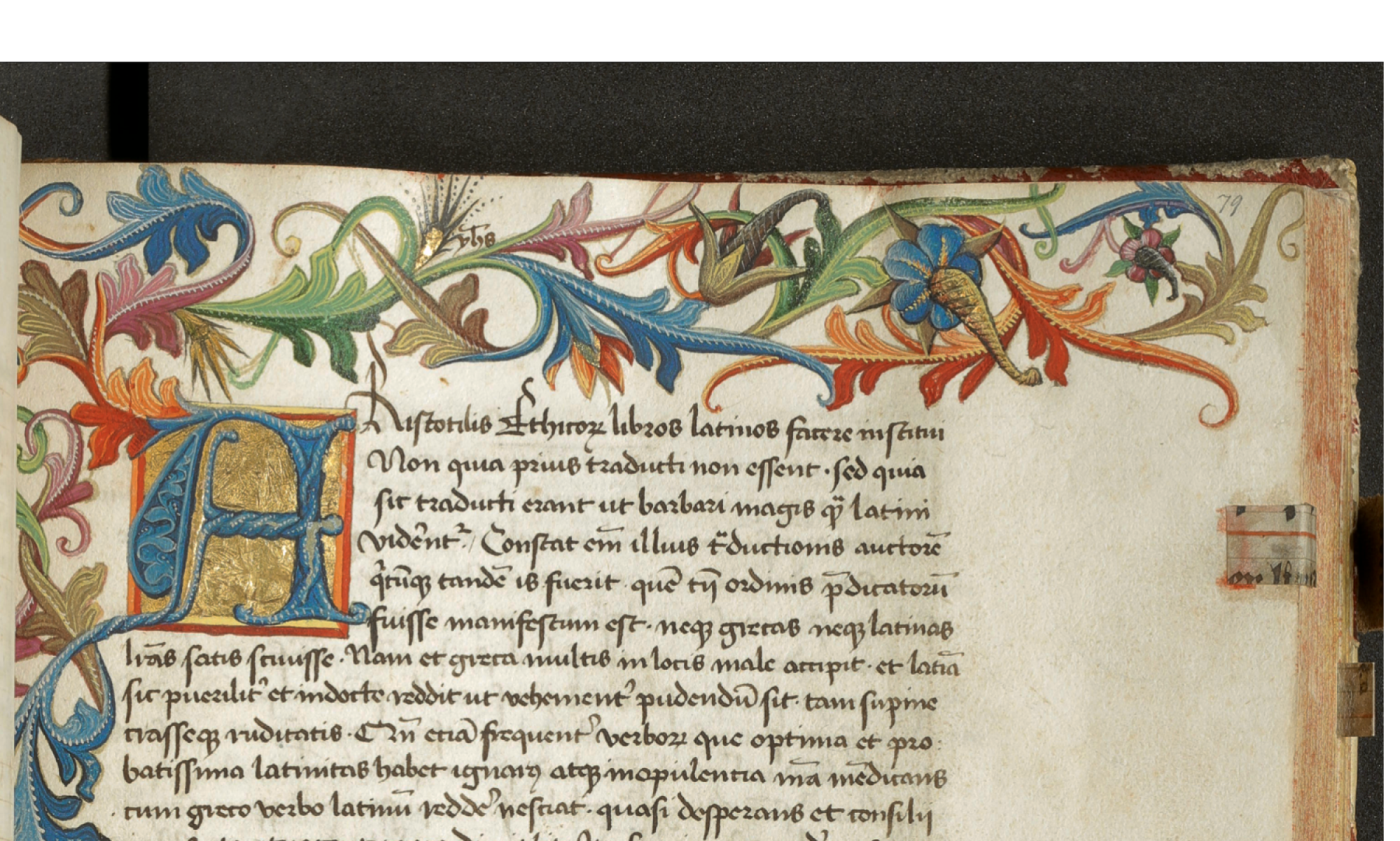The manicula project combines research in the history of philosophy, philology and cultural history. It sheds light on the interplay between the history of ideas and the history of reading and writing practices, embedding the study of philosophical thought in the material history of its media: manuscripts, copyists, readers, libraries etc. The main goal of the project is to produce a critical edition of all of Cusanus’ marginal notes to the Latin translations of the works of Plato and Aristotle. Each edition will be accompanied by a critical study.

From a philosophical perspective, the project aims to provide a new textual basis for the study of Nicholas of Cusa’s reception of Plato and Aristotle. The edition and study of the marginalia will provide an essential tool for interpreting Cusanus’ thought and intellectual development, offering new insights into his use of sources and reading chronology. On the one hand, the project examines the marginalia in the light of the reception of Plato and Aristotle in Cusanus’ works. It situates the multiple encounters with Platonic and Aristotelian texts in the development of his oeuvre.
On the other hand, the marginalia are considered as evidence of a specific commentary practice. For the corpus of glosses and notes bears witness to doctrinal interests, interpretative options and statements on Plato and Aristotle that clearly go beyond what can be deduced from Cusanus’ own works. From the perspective of the history of reading, the manicula project approaches the textual genre of marginalia in order to examine Cusanus’ intellectual practices as a reader and writer and his ideal of the library. The study of Cusanus’ collection of Platonic and Aristotelian manuscripts makes it possible to reconstruct his working methods and contexts. For instance, Cusanus often used different translations of the same book (e.g. Aristotle’s Metaphysics or Plato’s Phaedo) and had several copies of the same translation (e.g. Aristotle’s Ethics or Plato’s Republic). Moreover, the manuscripts often reveal Cusanus’ ‘reading workshop’, i.e. his active collaboration with other readers, writers and scholars, and the personal and intellectual network in which he shared texts and ideas.
